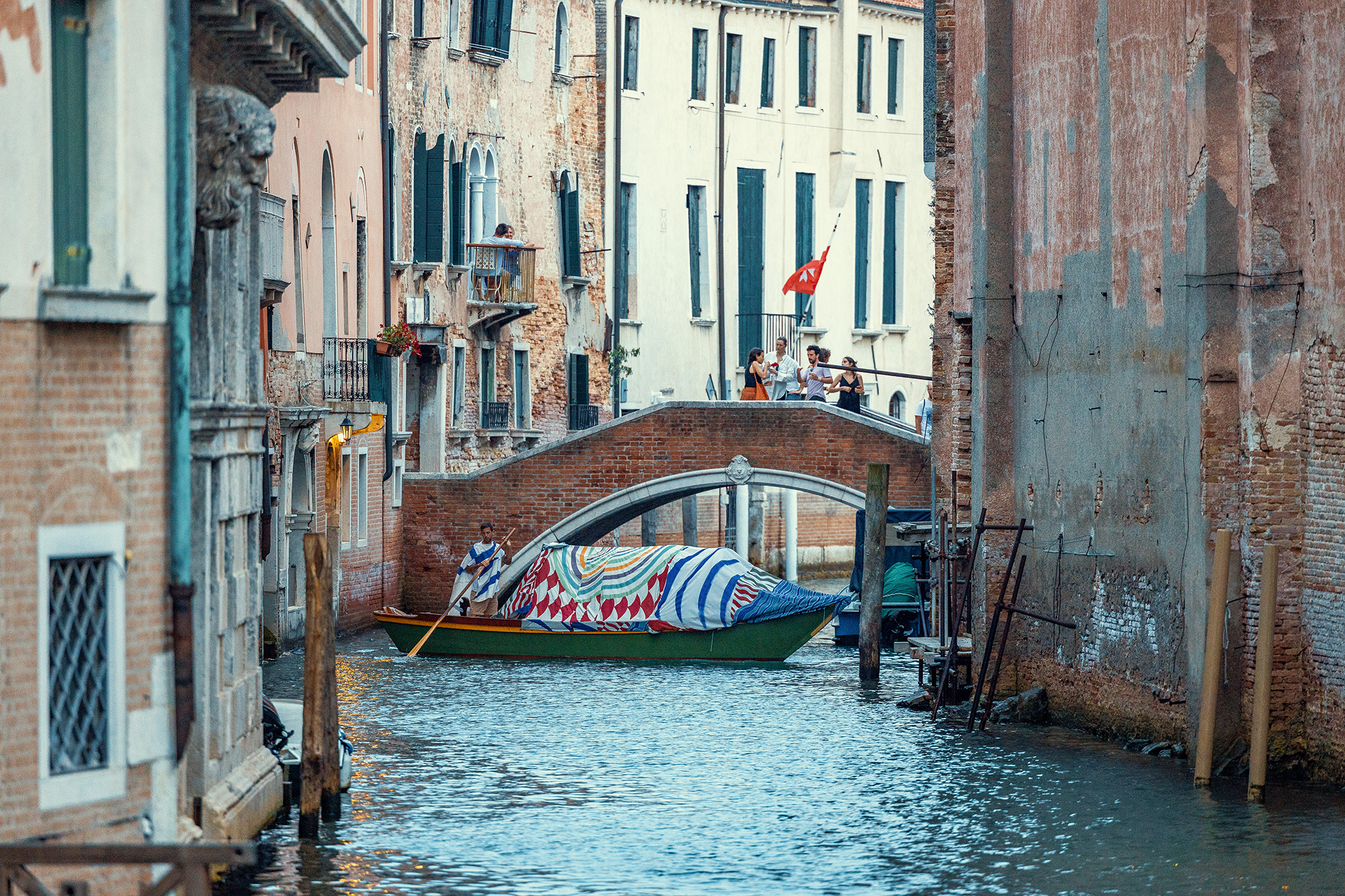An interview with Leonor Serrano Rivas and Diego Delas about The Future of High Waters: Geo-engineering Solutions for the Venetian Lagoon
When Leonor Serrano Rivas and Diego Delas, both artists, architects, and researchers, applied for the open call ‘The Future of High Waters: Geoengineering Solutions for the Venetian Lagoon’ hosted by TBA21, they immediately started reflecting on the word ‘solution’. What does it mean to think of a solution for the effects of the ecological crisis in a historical city like Venice?
Serrano Rivas and Delas: ‘The word ‘solution’ immediately made us think about [the German scholar and polymath, ed.] Athanasius Kircher’s attitude towards theoretical explanations and notions on illustration and drawing to rethink troubles further and therefore speculating with solutions.’
Exploring the idea of speculative thinking as a way to think about past or future possibilities, they proposed an alternative way of reading the Venetian Lagoon. Their proposal was rooted on the idea of imagination and storytelling, looking at the body of water from a non-Anthropocentric view. Serrano Rivas and Delas: ‘We’re not scientists, but we look at it from an artistic point of view. One thing we could do is speculate. We started thinking about the relationship between the city and the lagoon system, seeking an understanding from a pre-scientific perspective influenced by Kircher.
To better understand the complexity of the body of water, they held conversations and organised multiple exchanges with local expert groups, including scientists from Istituto delle Scienze Marine (ISMAR), Centro Previsioni e Segnalazioni Maree; academics from Ca’ Foscari University, and the activist group for the protection of the lagoon, We Are Here Venice. They also met with the pedagogues of the Venetian traditional rowing technique, Venice on Board, as this technique is an essential part of their end work.
In November 2021, Serrano Rivas and Delas met with the expert Georg Umgiesser from the Institute of Marine Sciences and Alvise Papa from the Municipality of Venice. He explained to them about ‘acqua alta’ (high water), the term used to describe the exceptional tide peaks that cause Venice’s partial flooding. ‘We understood there are two elements that work as characters in a sort of aquatic performance, which is the lagoon.’
From these meetings, they started looking at the Venetian Lagoon as a breathing body of water. Translating their site-specific research into the development of the artistic work “Underwater or behind the water world” both with the rhythmicality of the water as the notion of the expedition. The idea of the expedition is linked with knowledge formation and discovery. ‘We developed a work that proposes to overcome the image of a disastrous Venice catapulted by the ecological crisis. By introducing the methodology of imaginative and speculative thinking, we suggest unforeseen ways to understand our realities and give back the voice to the water.’
The installation Underwater or behind the water worlds consists of a 16mm video work, which you can watch in a traditional Venetian rowing boat. The rhythm of the water is synchronised with the heartbeat rhythm of the viewer. ‘We are using the Venetian traditional rowing boat only to disguise it as a floating creature, covered with striped canvases of the parked decaying old boats that sink every year out of abandonment. The cover creates an inner enclosure away from the city lights that allow us to look into the camera obscura and to further synchronise with the rower soundtrack, movements, and water sounds; as the carcass of the boats amplify and resonate with the mass of water of the lagoon.’
Text:
Nadeche Remst
Photo credits:
Breathings of the moon. Expedition, 2022. Leonor Serrano Rivas and Diego Delas.
Commissioned by TBA21–Academy with the support of S+T+ARTS.
Part of Becoming Fresh Salty Drops, the STARTS showcase event at TBA21–Academy’s Ocean Space, Venice. Photo by Enrico Fiorese.

